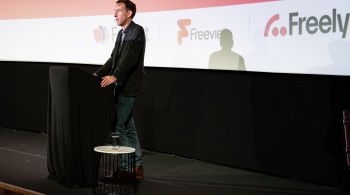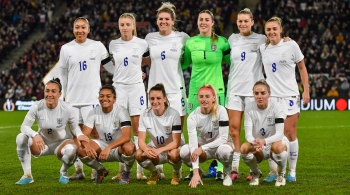
Could we get by without PSB?
There have always been those who want to ask this existential question of the UK’s broadcasting system, and as we embark on a new decade - one that promises more content and more technological change than ever before - it is likely that the question will be asked again.
2020 will, of course, focus minds on what we want out of our broadcasting system. As well as a whole raft of new global SVoD services coming our way, there will be a new BBC Director General due, a new PSB review from Ofcom, led by a new CEO, and overseeing proceedings, a new government with possibly another new Culture Secretary. In a TV career that spans more decades than I care to remember, I’m not sure I can think of a year in which there’s been quite so much at stake with so much uncertainty in play.
The steer given to Ofcom for its fourth PSB review is to be bold and ambitious in its thinking. I completely agree. However, ambition does not have to mean a scorched earth philosophy whereby we start all over again. There is one basic piece of thinking that should absolutely remain: as a nation, we need and we want a strong, British, universal system of television to keep everyone in this country informed, educated and entertained. A system that fuels the creative economy. That puts the UK on the world stage.
British PSB television has an enduring ability to fulfil its demanding remit and keep beating expectations of what television can provide. It does so much more than inform, educate and entertain, not least uniting the kingdom at a time when unity is in unusually short supply. And it has an ability not only to show the world to Britain, but to show Britain to the world. Our television is loved and trusted everywhere. In telly terms, we are already Global Britain.
But that is about as much as you can assume. For the rest of it – the nature of PSB in the 2020s, the scale and the strategies behind it - there must be some brave and imaginative thinking.
It’s especially true when we consider the questions that really matter: What is PSB there to do? How is it delivered? How is it discovered? If we establish the answers to these questions we will be well on the way to finding a PSB system that is fit for the era we live in.
In the face of global competition, I am pretty sure that UK collaboration will be a critical part of the process of discovering these answers. Almost two years ago, Sharon White told an annual conference hosted by Deloitte and Enders Analysis that PSBs should “collaborate to compete”. I certainly hope that regulators such as Ofcom follow the supportive sentiment with action. At the same time, I fear that if we leave it too long to work out what that phrase means in practice, the risk is we start talking about a different need: collaborate to survive. Even those who have been in dominant positions to date will need to find out the true meaning of partnership in the months and years to come.
Because, let’s face it, there is a prize worth fighting for. And that is the depth and breadth of content that UK audiences enjoy today: from Corrie to Hollyoaks; Louis Theroux, to Lorraine to Jeremy Vine; Love Island to Bake Off; Countryfile to Undateables. Not forgetting my current addiction: The Masked Singer. The sheer variety and volume that we get to dip in and out of - for free, on multiple devices, wherever we live in the country. That’s got to be worth preserving.
At Digital UK we have a role to play in this too: through our mission to bring all of that great content together in one place, for free - Freeview.
Like the rest of the industry, we are adapting to a world where viewers value a mixed ecology of tuning in live, catching up or bingeing at their leisure. And I’m delighted that we’ve just recruited senior executives - Sarah Milton from Channel 4 and Steve Gettings from Ofcom - to help deliver the next phase in Freeview’s evolution.
In this new age of TV, the services that succeed will be those that can aggregate and curate the best content and combine it with a great user experience.
Digital UK is collaborating with partners across the industry and beyond to ensure that PSB - in my view one of the greatest interventions in the history of British culture - continues to deliver for Britain. We will all need to be brave and bold in this new world.



